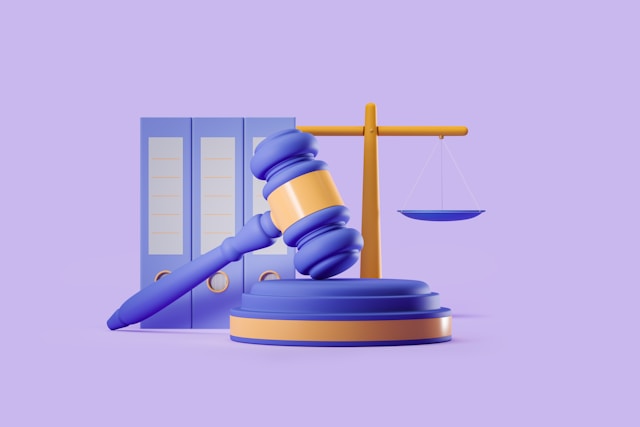Hiring a property management company is a decision that extends far beyond the mere convenience of offloading daily tasks. It represents a profound act of entrustment: a third party is being granted significant control over your invaluable real estate assets, entrusted with meticulous financial oversight, mandated to ensure unwavering regulatory compliance, and tasked with safeguarding the overall well-being of your entire community. In Canada’s intricately layered and highly regulated real estate environment, possessing a granular understanding of the inherent legal responsibilities of property managers is not merely advantageous—it is unequivocally critical for condo boards, sophisticated multi-unit owners, and strategic real estate investors who are committed to mitigating systemic risks and maintaining robust control over their investments.
This authoritative guide delves deep into the core legal duties that govern licensed property managers across Canada. It illuminates how these stringent responsibilities can distinctly vary from one province to another and, crucially, defines the exacting standards of legal compliance and accountability that boards and property owners should unreservedly demand from their chosen management providers.
1. Licensing & Regulatory Compliance: The Non-Negotiable Foundation of Professionalism
In the vast majority of Canadian provinces, individuals and firms engaged in property management—especially those handling trust funds, overseeing condominium corporations, or managing residential tenancies—are unequivocally mandated to be licensed and rigorously adhere to regulations enforced by specific provincial oversight bodies. This comprehensive licensing framework serves as a fundamental safeguard, establishing a baseline of professional competence, ethical conduct, and financial integrity that protects all stakeholders.
Key Provincial Regulators and Their Purview:
- Ontario: Property managers are meticulously regulated by the Condominium Management Regulatory Authority of Ontario (CMRAO). The CMRAO sets forth stringent licensing requirements, comprehensive professional standards, and a binding code of ethics, all designed to robustly protect consumers and ensure industry integrity.
- Alberta: Regulatory oversight falls under RECA (Real Estate Council of Alberta), which governs both real estate professionals and property managers, ensuring strict compliance with the provincial Real Estate Act.
- British Columbia: The BC Financial Services Authority (BCFSA) holds the mandate for regulating property managers, compelling adherence to the Real Estate Services Act and its associated regulations.
Essential, Probing Questions to Pose to Your Prospective Manager:
- “Can you confirm that all managers and supervising brokers within your organization who will be directly involved with our property are currently and fully licensed under the applicable regulatory body for our specific province/territory?”
- “Please provide us with your firm’s license numbers, as well as the license numbers and documented status histories for all key personnel from the relevant regulatory authority.”
Why This Rigorous Scrutiny Matters Profoundly:
Engaging an unlicensed or inadequately regulated property manager immediately exposes your condo board or ownership group to substantial legal and financial liabilities. Conversely, a licensed and reputable firm, like Manage Your Property, is legally compelled to adhere to a stringent framework encompassing professional conduct codes, rigorous financial controls, and mandatory continuing education requirements. This unwavering commitment to compliance directly and significantly mitigates your inherent risks. For a comprehensive overview of our property management services and specialized condo property management approach, we encourage further exploration of our site.
2. Fiduciary Duty & Impeccable Trust Account Management: The Apex of Financial Stewardship

One of the most profound and non-negotiable legal responsibilities assumed by a property manager is their fiduciary duty. This signifies a solemn legal obligation to act with the utmost loyalty, unwavering good faith, and exclusively in the absolute best interests of the property owner or condo corporation, unequivocally prioritizing your financial and operational well-being above their own. This critical duty permeates several core operational areas:
- Segregated Trust Accounts: A fundamental legal obligation is to meticulously keep all client funds (e.g., collected maintenance fees, rental income, special assessment funds, reserve contributions) strictly separate from the management company’s operational accounts. These funds must reside in designated, auditable trust accounts.
- Conflict of Interest Avoidance: Managers are legally compelled to proactively identify and scrupulously avoid any and all situations that could potentially lead to a conflict of interest. Where an unavoidable potential conflict exists, full, transparent disclosure and explicit written consent from the client are mandatory.
- Comprehensive Disclosure: The manager is legally and ethically bound to disclose all relevant information that could impact the property’s financial health, operational stability, or the client’s overarching interests, and to do so in a timely and comprehensive manner.
- Optimized Procurement: The fiduciary duty extends to diligently seeking and securing the best possible pricing and most favorable contractual terms from all vendors and service providers, consistently prioritizing the client’s financial advantage.
Specific, Non-Negotiable Trust Account Responsibilities Include:
- Maintaining distinct, individually designated trust accounts for each client or building under management. Absolutely no commingling of funds across different properties or with the management company’s operational funds is permissible, ever.
- Performing meticulous, monthly bank reconciliations to ensure absolute, line-by-line alignment between internal accounting ledgers and official bank statements. Learn more about this crucial process in our landlord’s guide to accounting and bookkeeping.
- Thoroughly documenting all incoming funds, outgoing disbursements, and internal transfers with robust audit trails.
- Implementing impregnable internal controls and access protocols to prevent any unauthorized access to or misappropriation of funds.
The intricate details of establishing and maintaining this uncompromising financial integrity, including the importance of accurate accounting for rental property success, are paramount. Further insights can be found regarding outsourcing property accounting, understanding rental expenses, and optimizing rental property tax deductions.
3. Contractual & Statutory Duties: The Legally Binding Operational Framework
Every professional property management company operating within Canada is legally compelled to function under the explicit, well-defined terms of a comprehensive written management contract. This legally binding agreement precisely delineates the scope of their delegated authority, specific responsibilities, and performance expectations. Crucially, this agreement, and every action undertaken by the manager, must strictly comply with a layered hierarchy of legal frameworks:
- The Condominium Act (Provincial): This fundamental legislation governs every aspect of the creation, ongoing operation, and eventual dissolution of condominium corporations in each specific province.
- Residential Tenancies Acts (Provincial): For buildings containing rental units, these provincial acts (e.g., the Residential Tenancies Act in Ontario) meticulously dictate the intricate legal relationship between landlords (which includes owners and their designated managers) and tenants. Understanding landlord responsibilities in Ontario and the specifics of the GTA Landlord-Tenant Act are critical. Key aspects also include using Ontario’s new standard rental lease agreement and comprehending the Ontario Standard Form of Lease.
- Applicable Corporate Laws: Should the management services be rendered on behalf of an investment corporation or other corporate entity, strict compliance with relevant corporate statutes is absolutely essential.
- Municipal Bylaws and Safety Codes: Adherence to all local municipal regulations covering zoning, stringent building standards, comprehensive fire safety protocols, proper waste management, and other environmental mandates is mandatory.
Typical Legal Duties Explicitly Embedded within Professional Management Agreements Include:
- Executing service contracts and procuring necessary services strictly within pre-approved budgetary allocations and agreed-upon financial limits.
- Diligently and consistently enforcing all established condo bylaws or lease terms as meticulously outlined in the governing documents.
- Ensuring continuous, proactive safety compliance, encompassing strict adherence to fire codes, accessibility standards for all individuals, and other building regulations.
- Systematic and timely collection of all rent or maintenance fees on behalf of the owner or corporation, ensuring proper accounting. For effective rent collection tips, refer to our resources, including insights on when rent payment is considered late.
- Meticulous preparation and timely distribution of all mandatory meeting notices (e.g., Annual General Meetings (AGMs), Special Meetings) and comprehensive disclosure packages (e.g., proposed budgets, audited financial statements).
Boards and Owners Must Rigorously Ensure:
- The management agreement unequivocally and explicitly defines the manager’s delegated authority. Any actions falling outside of this clearly defined scope (e.g., significant reserve fund withdrawals, initiating formal eviction proceedings, filing legal actions on behalf of the corporation) should explicitly require prior, written board approval to safeguard your interests.
- The terms and conditions of the management contract are fully compliant with all prevailing statutory requirements, as further detailed in our essential guide on legal requirements for residential property management in Canada.
4. Disclosure & Transparency Obligations: The Cornerstone of Unwavering Accountability

Property management firms are under a stringent legal and ethical obligation to provide transparent, comprehensive, and timely reporting on all financial matters, significant operational decisions, and any emerging issues that could potentially impact the property’s overall value, operational stability, or legal standing. This unwavering commitment to openness and clear communication forms the fundamental bedrock of a healthy, trusting client relationship.
Key Disclosure Requirements, Explicitly Mandated, Include:
- Delivering detailed, easy-to-understand monthly financial statements that accurately reflect all income generated and expenditures incurred, providing a clear financial snapshot.
- Providing immediate and comprehensive digital or physical access to all relevant contracts, detailed invoices, expense receipts, and operational logs upon reasonable request, ensuring complete auditability.
- Proactively disclosing any potential or actual conflicts of interest, particularly concerning vendor selection, procurement processes, or any other transactions where the manager might have a vested interest.
- Promptly reporting any discovered health and safety violations, significant compliance gaps, or critical incidents that occur on the property, ensuring immediate awareness and action.
A truly well-structured property management solution integrates a predefined, consistent reporting cadence, offers intuitive cloud-based document access for 24/7 client visibility, and establishes clear, auditable workflows for efficient board communication and streamlined approval processes. This commitment is central to our residential property management approach. For a deeper dive into record-keeping best practices, our blog offers valuable insights, including how to avoid common accounting mistakes landlords make.
5. Vendor Management & Procurement Integrity: Safeguarding Your Financial Interests
A significant proportion of disputes and financial inefficiencies in property management frequently originate from opaque or improperly managed vendor selection processes. Lingering questions of overcharging, undue favoritism, or general contract mismanagement can lead to substantial financial leakage and severe legal exposure for the property owner or corporation.
Legally and Ethically, Property Managers Must:
- Act with the utmost good faith, due diligence, and absolute impartiality when hiring, recommending, or overseeing contractors and all external service providers.
- Strictly avoid receiving any undisclosed kickbacks, commissions, or preferential treatment from vendors. All financial dealings must be transparent and solely for the client’s benefit.
- Maintain comprehensive, legally sound written contracts for all vendor agreements, explicitly outlining the scope of work, agreed-upon costs, and detailed terms of engagement.
- Diligently ensure that all engaged vendors are appropriately licensed, adequately insured (including general liability and WSIB where applicable per province), and fully compliant with all relevant regulatory and safety standards.
Your Prospective Management Company Should Readily Demonstrate a Willingness To:
- Consistently show you a minimum of three competitive quotes for all significant capital work or major repairs, ensuring a thorough fair market assessment and value for money.
- Meticulously document the selection criteria and provide a clear, itemized breakdown of all associated costs for any chosen vendor, justifying their decision.
- Furnish complete copies of all vendor licenses, up-to-date insurance certificates, and WSIB clearances upon request, ensuring due diligence is verifiable.
At Manage Your Property, we employ a rigorous, multi-stage competitive procurement process specifically designed to shield boards and ownership groups from financial waste, potential fraud, and undue legal exposure. This unwavering commitment to procurement integrity is a central tenet of our service ethos. Our property maintenance services are supported by this philosophy, and you can learn more about managing property repairs and maintenance and our broader guide on maintenance and repairs.
6. Legal Risk Management in Daily Operations: Proactive Asset Protection
A highly competent and appropriately licensed property manager plays an indispensable, proactive role in actively reducing legal risk for both landlords and condo boards. They achieve this by diligently ensuring that all daily operational practices are in strict alignment with prevailing provincial laws, municipal bylaws, and recognized industry best practices.
Common Risk Areas That Professional Managers Actively Mitigate Include:
- Improper Handling of Resident Complaints: Failure to follow proper, legally sound protocols for addressing and resolving resident grievances can quickly escalate minor disputes into costly legal actions. Our blog, navigating tenant conflict, offers further guidance.
- Mishandled Infractions: Inconsistent, unfair, or illegal handling of noise complaints, bylaw infractions, or breaches of lease agreements can lead to tribunals or litigation. You might also find relevant information in dealing with difficult tenants in Toronto.
- Breach of Privacy: Improper collection, storage, use, or communication of owner or tenant personal information can result in privacy breaches and legal consequences.
- Unauthorized Entry: Gaining entry into units without proper, legally mandated notice or valid legal justification. We provide guidance on when a landlord can inspect their rental property. You can also learn about general property inspections and guidelines for remote property inspections. Our dedicated property inspection services ensure these processes are handled correctly.
- Insurance/Permit Lapses: Failure to timely renew critical insurance policies, necessary operational permits, or building certifications, leaving the property vulnerable. You can learn about understanding fire hazards and protecting property from floods.
- Delayed or Missing Disclosure: Neglecting or delaying required disclosure obligations for real estate transactions (e.g., status certificates) which can derail sales and incur penalties.
Boards and Investors Should Meticulously Verify:
- What specific risk-mitigation systems and comprehensive protocols the manager has implemented (e.g., standardized forms, clear communication policies, regular legal review processes for documents and procedures).
- Whether a comprehensive, internally enforced standard operations manual exists that outlines all procedural guidelines, compliance checks, and emergency response protocols.
- If the manager maintains adequate E&O (Errors & Omissions) insurance to cover potential professional negligence claims, providing an essential additional layer of protection for the client. We elaborate on managing property damage and related risks in our blog.
7. AGMs, Status Certificates, and Document Accuracy: Precision in Governance and Transactions

Under most provincial condominium acts, the property manager bears significant responsibility for the accurate preparation and timely delivery of critical legal and governance documents. Errors, omissions, or delays in these fundamental areas can have severe repercussions, impacting sales, regulatory standing, and board credibility.
Key Documents Meticulously Managed by a Professional Property Manager Include:
- Comprehensive Annual General Meeting (AGM) packages, including agendas, resolutions, and supporting documents.
- Legally compliant Notices of Meeting for all types of board and owner gatherings.
- Meticulous preparation of annual budgets and distribution of audited financial statements.
- Expedient issuance of legally required disclosure documents for property sales, such as Status Certificates (Ontario), Form B (British Columbia), or Estoppel Certificates (Alberta).
Mistakes or Unnecessary Delays in These Critical Areas Can Lead To:
- Significant and costly delays in unit sales transactions, potentially impacting market value.
- Potential buyer complaints or legal claims against the corporation/owner for incomplete or inaccurate disclosures.
- Imposition of regulatory penalties and sanctions from provincial authorities, impacting the corporation’s standing.
Incisive Questions to Pose to Your Prospective Manager:
- “What is your standard processing time and typical guaranteed delivery timeframe for official status certificates or equivalent disclosure documents, especially under urgent requests?”
- “What rigorous internal controls and multi-tiered approval processes do you have in place to ensure all legal documents are not only compliant with current legislation but have also received explicit board approval before any distribution?”
We provide comprehensive assistance with all aspects of legal document preparation and timely issuance as an integral part of our condo property management services.
8. Tenant and Resident Rights: Navigating the Complexities of Rental Law
When managing properties that include rental units, whether they are dedicated rental buildings or mixed-use condominiums, the property manager must demonstrate an expert understanding of and strict adherence to the nuances of provincial Residential Tenancies Acts (e.g., the Landlord and Tenant Board (LTB) framework in Ontario). This is a complex legal domain with significant implications for landlords.
Key Responsibilities Under Provincial Tenancy Acts Include:
- Implementing legal rent increases strictly in accordance with provincial guidelines and adhering to proper notice periods. Detailed guidance on serving rent increases in Ontario is available. You can also explore ways to increase rent beyond guidelines and the consequences of rent control exemptions.
- Providing proper, legally mandated notice for entry into units for inspections or repairs, and for lease termination. We provide guidance on when a landlord can inspect their rental property.
- Ensuring the timely and lawful return of security deposits (where applicable per province’s specific regulations).
- Filing eviction applications and other landlord-tenant disputes exclusively through the appropriate legal channels and tribunals (e.g., provincial tribunals like the LTB), adhering to all procedural requirements.
- Full and unwavering compliance with human rights and accommodation laws, ensuring fair and equitable treatment for all residents without discrimination. Insights into steps for finding suitable tenants are also useful.
Poorly Handled Tenant Issues Can Lead To:
- Severe tribunal penalties, fines, and adverse orders against the landlord.
- Costly human rights claims and protracted legal battles, damaging reputation.
- Significant reputational damage to the property and its owner, impacting future rentals.
- Increased vacancy rates due to tenant dissatisfaction and negative word-of-mouth.
If your property includes rental units, it is absolutely imperative to ensure your prospective manager is intimately familiar with all applicable landlord-tenant laws and has a proven, “legal-first” approach” to all aspects of tenant relations.
9. Emergency Preparedness & Response: Protecting Lives and Assets
A property manager’s legal responsibility extends to establishing and meticulously maintaining robust emergency preparedness plans. This crucial duty is not merely a best practice; it’s a legal imperative in safeguarding the well-being of residents and protecting the physical integrity of the property itself.
Key Elements of Legal Emergency Preparedness Include:
- Developing, regularly reviewing, and actively communicating emergency procedures for critical incidents such as fires, floods, natural disasters, or power outages.
- Ensuring all mandatory safety equipment (e.g., fire extinguishers, smoke detectors, carbon monoxide detectors) is consistently present, fully functional, and regularly inspected according to all relevant codes.
- Maintaining up-to-date contact information for all residents and emergency services, ensuring rapid and effective communication during crises.
- Having protocols for immediate securing of the property and commencement of damage mitigation efforts after an incident, minimizing further loss.
An adept property manager is a key part of your property’s resilience plan. They proactively identify potential hazards, implement preventative measures, and respond with speed and precision when unforeseen events occur. This ensures legal compliance and invaluable peace of mind. For more on preparing your rental and preparing for new tenants, our resources can help.
10. Termination of Services & Transition: The Importance of a Seamless Exit
Even when a property management agreement is ending, the legal responsibilities of the manager do not simply vanish. There are specific, legally binding duties related to the orderly transition of services and the meticulous handover of documentation and funds.
Key Legal Responsibilities During Termination Include:
- Adhering strictly to the notice period for termination as explicitly outlined in the management agreement.
- Providing a full and accurate final accounting of all funds, including trust account balances, outstanding receivables, and payables.
- Ensuring the complete and organized handover of all property records, including tenant files, financial ledgers, maintenance histories, contracts, and legal documents.
- Facilitating a smooth transition with the new management company or directly with the owner, minimizing disruption to residents and operations. Our blog on smooth transition when listing a property with a current tenant offers relevant insights.
A professional management company prides itself on a smooth and legally compliant exit strategy, reflecting their overall commitment to ethical conduct.
Final Thoughts: Choosing a Legally Compliant & Accountable Partner
The legal landscape of property management in Canada is complex and ever-evolving. The decision to engage a property management company is, therefore, a strategic one that necessitates a thorough understanding of their multifaceted legal responsibilities. By choosing a licensed, reputable, and transparent firm, you are not merely outsourcing tasks; you are investing in sophisticated risk mitigation, unwavering financial integrity, and the assurance that your property will be managed with the highest standards of legal compliance and professional accountability.
Whether you are expertly managing a condominium or strategically expanding a multi-unit investment portfolio, understanding these legal duties empowers you to ask the right questions and demand the highest levels of service. This foresight and diligence will ultimately safeguard your investment and enhance its long-term value. Consider our expertise in property evaluations and single-family home management. We’re here to help you make informed decisions. Contact us today to learn more about how our legally compliant and comprehensive property management services can benefit you.





